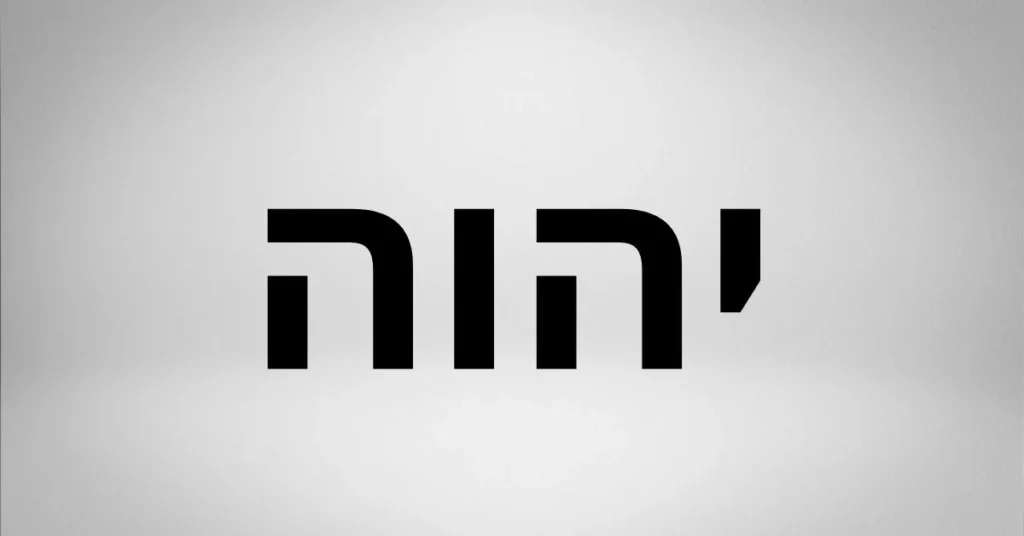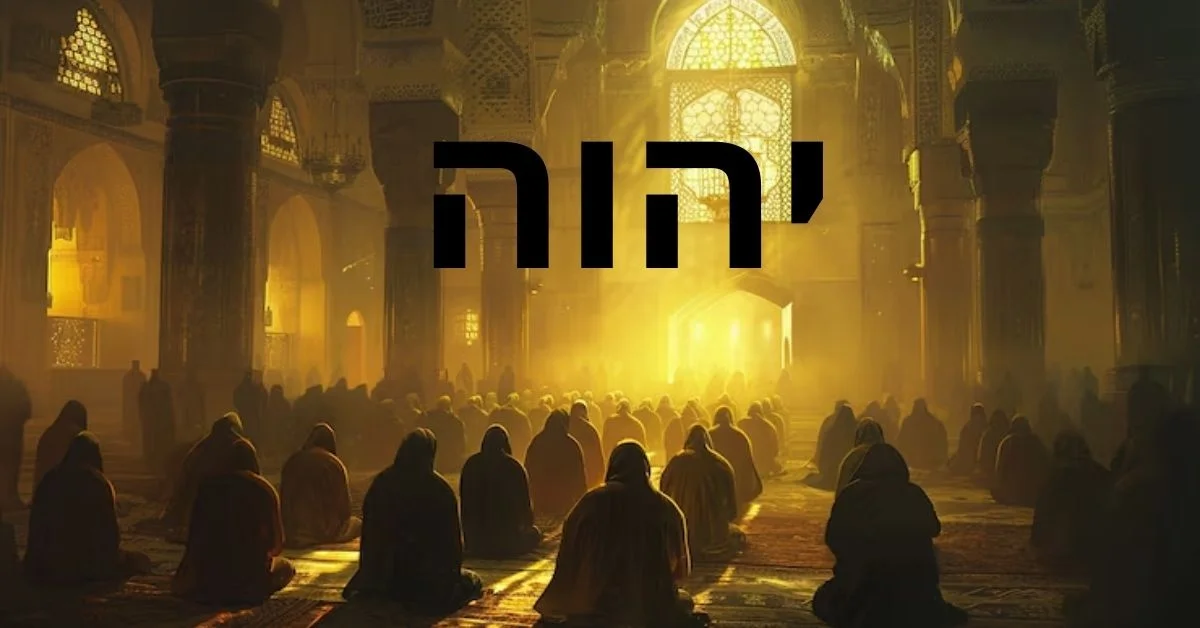Many people think that Yahuah was the first and most holy name of God, and they commonly connect it with the four Hebrew letters that spell out the divine name in the Bible, known as the Tetragrammaton (יהו֔).
Yahuah is considered by many who believe in Hebrew Roots to be a more authentic pronunciation and portrayal of the divine identity than other conventional interpretations such as “God” or “Lord.” Supposedly, the name denotes:
- “He who exists”
- “The eternal one”
- “Self-existent and ever-living”
Understanding this name is more than semantics—it’s about restoring reverence and truth to how we refer to the Most High.
Yahuah vs. Yahweh vs. Jehovah: What’s the Difference?
Though all three names attempt to represent the same Hebrew root (יהוה), they differ significantly in origin and usage.
| Name | Origin | Common Use | Pronunciation Focus |
| Yahuah | Restored Hebrew (modern movement) | Used in Sacred Name circles | Emphasizes “Yah-oo-ah” sound |
| Yahweh | Scholarly reconstruction | Found in academic texts | Based on Masoretic Hebrew |
| Jehovah | Latinized, influenced by vowels | Traditional Christian texts | Considered inaccurate by many |
Many scholars now agree that “Jehovah” is a mistranslation, resulting from mixing the consonants YHWH with vowel points from “Adonai.”
The Sacred Name in Hebrew Roots Movements
Among Hebrew Roots, Messianic believers, and other sacred name groups, it holds deep spiritual importance. These communities seek to:
- Return to original Hebrew teachings.
- Use names like Yahuah for the Father and Yahusha for the Messiah.
- Avoid Greek and Latin substitutes often used in mainstream translations.
The shift to using “Yahuah” is not just linguistic — it’s about restoring reverence and obedience to what they believe is the true name of the Creator.
| Name | Pronunciation | Origin | Usage | Theological Significance |
|---|---|---|---|---|
| Yahuah | Yah-oo-ah | Restored from original Hebrew (יהוה) | Used in Sacred Name, Hebrew Roots, and Messianic communities | Believed to be the most accurate, honoring the personal name of the Creator |
| Yahweh | Yah-way | Scholarly reconstruction of the Tetragrammaton | Used in academic, some theological, and Messianic contexts | Popular among scholars; considered reverent but possibly incomplete |
| Jehovah | Jeh-ho-vah | Latinized mispronunciation from medieval Christianity | Common in Christian Bibles (esp. KJV, older texts) | Widely debated; considered inaccurate by most Hebrew scholars |
| God / Lord | Standard English | Generic English titles, not names | Used in most mainstream Bible translations | Viewed by Sacred Name groups as substitutes that lack specificity |
Why the Name Yahuah Matters Spiritually
For believers in the sacred name, “Yahuaah” is not optional — it’s essential for true worship.
Here’s why it matters:
- Reverence: The name is viewed as too holy to replace with general terms like “Lord.”
- Truth: Many see traditional translations as compromised or influenced by pagan or political agendas.
- Identity: Knowing and using the Father’s true name strengthens relationship and spiritual clarity.
In Exodus 3:15, Yahuah tells Moses: “This is My name forever, and this is My memorial to all generations.” This verse is often cited to support the ongoing relevance of the sacred name.
Is “Yahuah” in the Bible?
In the ancient Hebrew Scriptures, the Tetragrammaton (יהוה) is found more than 6,800 times. Many believe that translating it as “LORD” removes any hint of divinity, even though that is the most common translation in English Bibles.
The Scriptures (ISR) and Cepher are two examples of modern translations that make an effort to keep the term “Yahuaah” in their versions, with the hope of restoring it to its holy original.
The Revival of the Sacred Name in Modern Times
With the rise of digital access to ancient manuscripts and growing disillusionment with institutional religion, more people are discovering the importance of the name Yahuah.
Popular YouTube teachers, independent scholars, and spiritual leaders are reviving conversations about:
- Sacred name theology
- Hebraic context of Scripture
- Misconceptions in modern Christianity
This revival isn’t just intellectual — it’s transformational for many seeking a deeper walk with the Creator.

How to Honor the Name Yahuah in Practice
If you’re curious about incorporating the name Yahuah into your spiritual life, here are some ways:
- Use His Name in Prayer
Begin prayers with “Yahuah” instead of “God” or “Lord.” - Read Translations That Restore the Name
Versions like the HalleluYah Scriptures, Cepher, or ISR Scriptures preserve the sacred names. - Speak It with Intent
Say “Yahuaah” with understanding and reverence — not out of ritual, but relationship. - Study Hebrew Roots
Gain deeper insight by exploring the ancient culture, language, and Scripture in its original form.

Conclusion
Yahuah is more than just a title; it denotes connection, identity, and awe toward the One who made everything. Embracing the name Yahuah may provide a more fulfilling spiritual journey, whether you’re new to investigating your faith’s Hebrew origins or are dedicated to restoring sacred names.
FAQs
Q: Is “Yahuah” the same as “God”?
A: In intent, yes. But many believers use “Yahvah” to preserve the specific identity of the Most High as revealed in the Hebrew Scriptures.
Q: How is “Yahuah” pronounced?
A: Most pronounce it as “Yah-oo-ah.” However, variations exist depending on linguistic tradition.
Q: Why don’t traditional Bibles use “Yahuah”?
A: Most Bibles replace יהוה with “LORD” due to translation traditions, reverence concerns, or theological decisions.
Q: Is using the name Yahuah required for salvation?
A: This is debated. Some Sacred Name groups say yes, while others believe it’s about the heart behind your faith, not just pronunciation.
For more information, click here.









